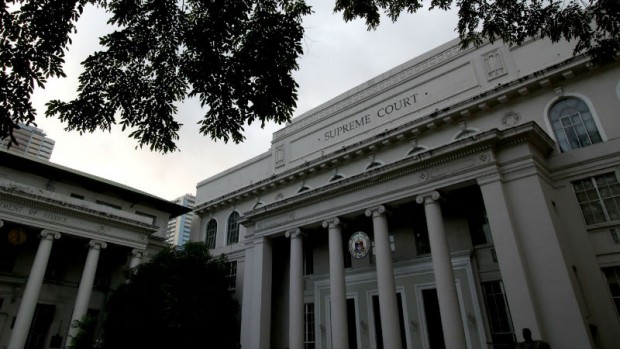Withholding salaries of government employees to liquidate cash advance is allowed under the rules of the Commission on Audit (COA), the Supreme Court First Division ruled as it acquitted the Mayor of Sta. Cruz, Laguna of the crime of malversation of public funds who was convicted by the Sandiganbayan who liquidated cash advance by salary deduction.
Last November 2013, Mayor Domingo Panganiban was convicted of and sentenced to suffer the penalty of imprisonment of 10-12 years, minimum to 17-18 years, maximum.
The case stemmed from a cash advance of P500,000.00 made by Panganiban in May 2006 for a planned travel to South Australia from June to July 2006 to research and study the town’s sustainable environmental projects. However, for undisclosed reason, the travel did not push through prompting Panganiban to ask the town accountant if he could liquidate the said cash advance through salary deduction by withholding his salaries to which the said accountant agreed.
When his term expired last 2007, Panganiban had a remaining liquidated amount of P256,000.00. When asked by the COA to explain the unliquidated amount, he apprised the COA of the arrangement to have the cash advance liquidated by salary deductions. Thus, from his terminal pay when his term as mayor expired, he had fully paid the said unliquidated amount of P256,000.00.
However, despite the said liquidation arrangement, the Ombudsman still found probable cause to charge him with malversation of public funds which, when filed and heard by the Sandiganbayan, the latter court found Panganiban guilty of the said offense and sentenced him to suffer the said penalty of imprisonment of 10-12 years, minimum, to 17-18 years, maximum.
Panganiban, through his lawyers, Romulo Macalintal and Edgardo Carlo Vistan, appealed the Sandiganbayan decision to the Supreme Court which was raffled to the First Division.
Meanwhile, the high court’s First Division said the withholding of salaries of employees to liquidate a cash advance is an allowed practice under the rules of the COA.
During the hearing of his case at the Sandiganbayan, Panganiban’s lawyers obtained the testimony of the Regional Director of COA who admitted that liquidation of cash advances through salary deduction or by installment under an agreement between the public official and the municipality has long been allowed and respected by the COA. The COA official even admitted during said hearing that no particular case has been filed by COA against any official liquidating such cash advances under such agreement.
“The practice of liquidated cash advances by means thereof being one that is allowed, the withholding of petitioner’s salaries continued until the expiration of his term of office,” the high court said.
“To the mind of the Court, the confluence of these circumstances serves to negate the factual and legal bases for Petitioner’s liability for failure to render accounts, even if it was this correct charge which was made against him,” the high court added.
The high court noted that the cash advance has been fully paid long before his arraignment before the Sandiganbayan because the remaining balance was satisfied through his terminal leave pay.
The high court also found good faith as a valid defense of Panganiban as he relied on the said COA practice of allowing liquidation of cash advance by salary deduction and his full liquidation thereof under such agreement ultimately negated any criminal intent on his part and ultimately translated into good faith he interposed as a defense.
The decision was concurred in by Chief Justice Maria Lourdes Sereno and Associate Justices Teresita Leonardo-De Castro, Lucas Bersamin and Estrella Perlas-Bernabe. RAM
RELATED STORY
Ex-DA chief backs farmer group in polls
